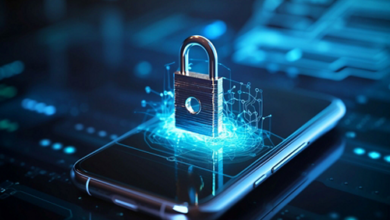
The Impact of Quantum Computing on Cybersecurity
Quantum computing, a revolutionary technological advancement, is poised to reshape the landscape of cybersecurity. Leveraging the principles of quantum mechanics, quantum computers promise unprecedented computational power, potentially outstripping classical computers by orders of magnitude. This tremendous capability, while opening new avenues for innovation and problem-solving, also presents significant challenges and opportunities for the field of cybersecurity. In this blog post, we will delve into the implications of quantum computing on cybersecurity, exploring both the potential threats and the countermeasures being developed to safeguard our digital world.
Understanding Quantum Computing
Before delving into its impact on cybersecurity, it’s essential to understand the basics of quantum computing. Unlike classical computers that use bits (0s and 1s) to process information, quantum computers use quantum bits or qubits. Qubits can exist in multiple states simultaneously due to a property called superposition. Additionally, quantum entanglement allows qubits that are entangled to be interdependent regardless of the distance separating them. These properties enable quantum computers to perform complex calculations at exponentially faster rates than classical computers.
Quantum Computing: A Double-Edged Sword for Cybersecurity
Threats Posed by Quantum Computing
- Breaking Encryption:
One of the most significant threats posed by quantum computing is its potential to break widely-used encryption methods. Classical encryption schemes, such as RSA and ECC, rely on the difficulty of factoring large prime numbers and solving discrete logarithm problems, respectively. Quantum algorithms, particularly Shor’s algorithm, can solve these problems exponentially faster than the best-known classical algorithms, rendering these encryption methods obsolete. - Compromising Public Key Infrastructure (PKI):
Public Key Infrastructure (PKI) is the foundation of secure communications on the internet. It underpins protocols like SSL/TLS, which secure web traffic, and is essential for digital signatures and certificates. Quantum computers, with their ability to break cryptographic algorithms used in PKI, could potentially compromise the entire framework, leading to widespread insecurity and data breaches. - Data Harvesting for Future Decryption:
Adversaries may engage in “store now, decrypt later” attacks, where they intercept and store encrypted data with the intention of decrypting it once quantum computers become powerful enough. Sensitive information that is secure today could be at risk in the future, making the protection of long-term secrets particularly challenging.
Also Check
Opportunities Presented by Quantum Computing
- Quantum-Resistant Cryptography:
In response to the threat of quantum computing, researchers are developing quantum-resistant cryptographic algorithms. Also known as post-quantum cryptography, these algorithms are designed to be secure against both classical and quantum attacks. Promising candidates include lattice-based cryptography, hash-based cryptography, and code-based cryptography. The transition to quantum-resistant cryptography is a proactive step towards ensuring long-term security in the quantum era. - Quantum Key Distribution (QKD):
Quantum Key Distribution (QKD) leverages the principles of quantum mechanics to securely distribute encryption keys. Unlike classical key distribution methods, QKD ensures that any attempt to intercept the keys would disturb the quantum states, alerting the communicating parties to the presence of an eavesdropper. This provides a level of security that is theoretically unbreakable by both classical and quantum computers. - Enhanced Security Protocols:
Quantum computing can also contribute to the development of new security protocols. For instance, quantum-based random number generators (QRNGs) can produce truly random numbers, enhancing the security of cryptographic keys. Additionally, quantum algorithms can be employed to improve intrusion detection systems, making them more effective at identifying and mitigating threats.
Preparing for the Quantum Era
The transition to the quantum era requires a proactive approach to cybersecurity. Here are some steps that organizations and governments can take to prepare for the challenges and opportunities presented by quantum computing:
- Invest in Research and Development:
Continued investment in the research and development of quantum-resistant cryptographic algorithms and quantum security technologies is crucial. Collaboration between academia, industry, and government agencies can accelerate the advancement of these solutions. - Adopt a Quantum-Resilient Strategy:
Organizations should develop and implement a quantum-resilient strategy, which includes assessing current cryptographic systems, identifying vulnerabilities, and planning for the transition to quantum-resistant algorithms. This strategy should also involve educating stakeholders about the implications of quantum computing on cybersecurity. - Implement Hybrid Cryptographic Systems:
During the transition period, hybrid cryptographic systems that combine classical and quantum-resistant algorithms can provide an additional layer of security. This approach ensures that even if one algorithm is compromised, the other remains secure. - Monitor Quantum Computing Developments:
Keeping abreast of the latest developments in quantum computing and quantum cryptography is essential. By staying informed, organizations can adapt their security measures to address emerging threats and leverage new opportunities. - Enhance Regulatory and Compliance Frameworks:
Governments and regulatory bodies should update existing frameworks and develop new policies to address the challenges posed by quantum computing. This includes establishing standards for quantum-resistant cryptography and promoting best practices for quantum security.
Conclusion
Quantum computing holds the potential to revolutionize various fields, including cybersecurity. While it presents significant threats to current cryptographic systems, it also offers opportunities to develop more robust and secure protocols. By proactively preparing for the quantum era through research, strategic planning, and collaboration, we can harness the power of quantum computing while mitigating its risks. The future of cybersecurity in the quantum age depends on our ability to anticipate and adapt to these profound technological changes, ensuring the protection of our digital world for generations to come.








